A Tale Of Two Chinas
Its economic bubble has burst, which may make them more dangerous.
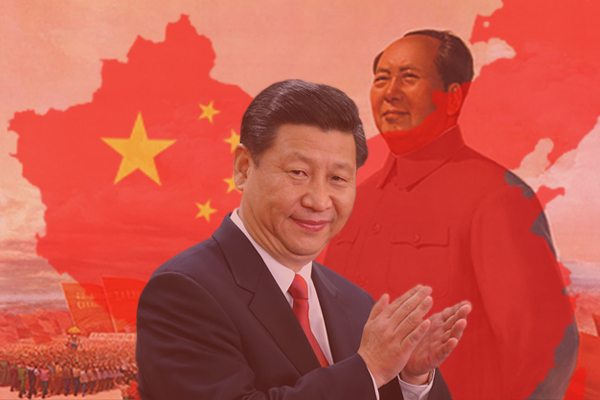
The Atlantic’s China-based contributor Michael Schuman is sounding seemingly contradictory alarm bells. In a span of two days, he warns that the PRC is simultaneously imploding and trying to take over the world.
On Thursday, he proclaimed “The China Model Is Dead.“
China’s jobless college graduates have become an embarrassment to Chinese leader Xi Jinping. The unemployment rate among the country’s youth has reached an all-time high, putting the country’s severe economic troubles on display at home and abroad. In August, Xi’s administration decided to act: Its statistics bureau stopped releasing the data.
But Xi can’t hide China’s economic woes—or hide from them. The problems are not just a post-pandemic malaise, or some soon-to-be-forgotten detour in China’s march to superpower stature. The vaunted China model—the mix of liberalization and state control that generated the country’s hypersonic growth—has entered its death throes.
The news should not come as a surprise. Economists and even Chinese policy makers have warned for years that the China model was fundamentally flawed and would inevitably break down. But Xi was too consumed with shoring up his own power to undertake the necessary reforms to fix it. Now the problems run so deep, and the repairs would be so costly, that the time for a turnaround may have passed.
Contrary to the assumptions of many commentators in recent years, China may never overtake the United States as the world’s dominant economy if current trends continue. In fact, it’s already falling behind.
A downward trajectory in China does not necessarily ensure the future of American global power, however. China may turn out to be a less formidable competitor than once imagined and offer a less attractive model of development for the rest of the world. But economic failure could also heighten Xi’s determination to overcome American dominance—if not by becoming richer, then through other, possibly more destabilizing means.
There’s a lot more but that paragraph sets up yesterday’s follow-up piece, “Xi Jinping Is Done With the Established World Order.”
The world’s most powerful leaders gathered in New Delhi for the year’s premier diplomatic event—the G20 summit—but China’s Xi Jinping deemed it not worth his time. His absence sends a stark signal: China is done with the established world order.
Ditching the summit marks a dramatic turn in China’s foreign policy. For the past several years, Xi has apparently sought to make China an alternative to the West. Now Xi is positioning his country as a full-on opponent—ready to align its own bloc against the United States, its partners, and the international institutions they support.
Xi’s break with the establishment has been a long time coming. His predecessors integrated China into the U.S.-led global order by joining its foundational institutions, such as the World Bank and the World Trade Organization. For much of his tenure over the past decade, Xi has kept a foot in the door to that Western order—even as China’s relations with the U.S. have deteriorated. China even participated (though grudgingly) in G20 efforts to help alleviate the debt burden on struggling low-income countries.
But over the course of his rule, Xi has grown hostile to the existing order and intent on altering it. He has focused on developing alternative institutions that Beijing could lead and control. Xi formed the Asian Infrastructure Investment Bank to rival Washington’s World Bank, for instance, and promoted competing international forums, such as the Shanghai Cooperation Organization, whose membership includes Russia and Iran.
Xi is willing to hang on to some established institutions, such as the United Nations, that he thinks he can repurpose to promote his global aims. But apparently, the G20 wasn’t one of those. The Communist regime is sending Premier Li Qiang to the summit in place of Xi—a significant snub for a meeting that is supposed to be composed of top leaders.
Not surprisingly, the Chinese government has provided no explanation for Xi’s absence. But a simple rationale is easy to conjure: By skipping the G20, Xi is attempting to discredit it. The forum is filled with U.S. partners and therefore resistant to Chinese manipulation or control; moreover, it has mounted an effort to make the stewardship of global affairs more inclusive—it welcomed the African Union as a new member—and Xi likely sees it as competition for his own plans to win adherents in the global South.
In place of institutions like the G20, Xi has been pushing rivals that he thinks he can dominate or pack with friendly clients. One such forum is the BRICS group of developing countries, which includes Brazil, Russia, India, China, and South Africa. Xi has been lobbying for a rapid expansion of the BRICS membership, and at the group’s August summit, in Johannesburg, he got what he wanted. Six additional countries were invited to join, including at least three (Egypt, Ethiopia, and Iran) with close political and economic ties to China. Through such expansion, the economist Hung Q. Tran argued in a recent report, China aims to “turn the BRICS group into a support organization for China’s geopolitical agenda” and a “venue for anti-US political activism.”
Trading a major role in the G20 for the leading role in a collection of also-rans seems like a step down. But Schuman is almost certainly right that an economically weaker PRC is potentially a more dangerous and certainly more revisionist one.
A characteristically unsigned Economist analysis from a couple weeks ago (“Why China’s economy won’t be fixed“) argues that the two are very much liked, but reverses the directionality, blaming a changed leadership focus.
Why does the government keep making mistakes? One reason is that short-term growth is no longer the priority of the Chinese Communist Party (ccp). The signs are that Mr Xi believes China must prepare for sustained economic and, potentially, military conflict with America. Today, therefore, he emphasises China’s pursuit of national greatness, security and resilience. He is willing to make material sacrifices to achieve those goals, and to the extent he wants growth, it must be “high quality”.
Yet even by Mr Xi’s criteria, the ccp’s decisions are flawed. The collapse of the zero-covid policy undermined Mr Xi’s prestige. The attack on tech firms has scared off entrepreneurs. Should China fall into persistent deflation because the authorities refuse to boost consumption, debts will rise in real value and weigh more heavily on the economy. Above all, unless the ccp continues to raise living standards, it will weaken its grip on power and limit its ability to match America.
Mounting policy failures therefore look less like a new, self-sacrificing focus on national security, than plain bad decision-making. They have coincided with Mr Xi’s centralisation of power and his replacement of technocrats with loyalists in top jobs. China used to tolerate debate about its economy, but today it cajoles analysts into fake optimism. Recently it has stopped publishing unflattering data on youth unemployment and consumer confidence. The top ranks of government still contain plenty of talent, but it is naive to expect a bureaucracy to produce rational analysis or inventive ideas when the message from the top is that loyalty matters above all. Instead, decisions are increasingly governed by an ideology that fuses a left-wing suspicion of rich entrepreneurs with a right-wing reluctance to hand money to the idle poor.
The fact that China’s problems start at the top means they will persist. They may even worsen, as clumsy policymakers confront the economy’s mounting challenges. The population is ageing rapidly. America is increasingly hostile, and is trying to choke the parts of China’s economy, like chipmaking, that it sees as strategically significant. The more China catches up with America, the harder the gap will be to close further, because centralised economies are better at emulation than at innovation.
Liberals’ predictions about China have often betrayed wishful thinking. In the 2000s Western leaders mistakenly believed that trade, markets and growth would boost democracy and individual liberty. But China is now testing the reverse relationship: whether more autocracy damages the economy. The evidence is mounting that it does—and that after four decades of fast growth China is entering a period of disappointment.
Aside from the obvious human tragedy of the economy of a country of 1.4 billion souls going into a permanent tailspin, it’s hardly unheard of for autocrats to use an aggressive foreign policy as a distraction from such woes.

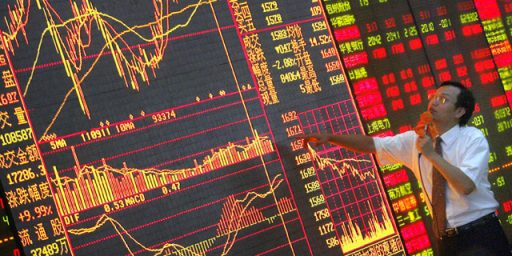

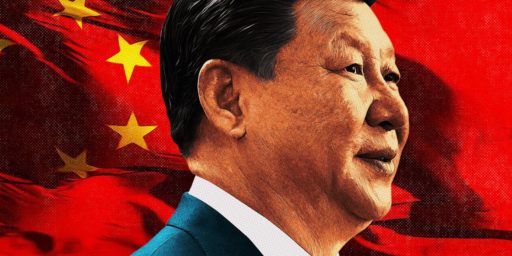
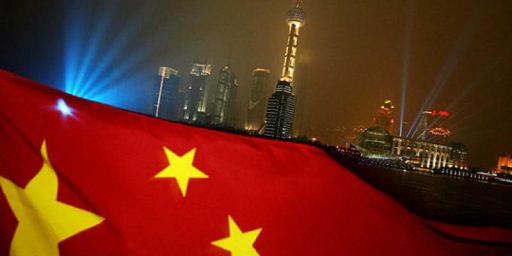
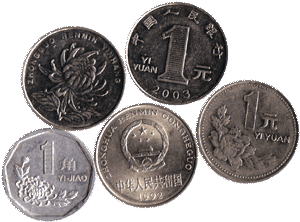
While I agree that China is experiencing a lot of self imposed economic trouble, I’m certain that in a few years we will be reading dire warnings about their comeback. Not so much because anything will have changed but because it is the nature of professional pundits to seek the contrarian view and exaggerate it. Given that, I take these “China is dead” articles with a large grain of salt. It’s too early to tell whether they can adjust or not.
“…centralised economies are better at emulation than at innovation.”
This puts the problem mildly. There are larger problems with an economy directed by an authoritarian government. First, they put people in positions of authority for the ability to do as they are told without question or comment. Their competence is not a factor, since in the authoritarian regime those with ability are seen with suspicion, since ability breeds ambition, which means danger for the dictator. (For an example of this phenomenon in our own country, see Florida with Ladapo, Rufo, et al.) Most dictators are very aware that they were ambitious underlings at some point. The incompetence which permeates all authoritarian governing is something that cannot be weeded out. As they say, feature not bug.
Secondly, it also seems that countries like China and Russia have economies that live and die by exports. This is because they ignore one central economic fact. National economies run best with high levels of domestic spending. In the US, 70% of our economy is based on it. Look at China and Russia. Have their economic policies put much cash into the hands of the common people? The sight of Russian soldiers breaking ranks to steal washing machines from Ukrainian houses argues no. That China is now in economic trouble also seems to argue that they don’t have enough domestic spending to soften the blow when exports are at risk.
@MarkedMan:
While pundits are gonna pundit, I think something real has changed in China over the last years, namely the re-establishment of a personal dictatorship by Xi.
Such a mode of government has even more drawbacks than more collective dictatorships.
After Mao (who really fucked up his country), China moved on to a more collective leadership – much as the Soviet Union had after Khrushchev (and Stalin before him). Sure, in both cases the Secretary General of the Communist Party was still the pre-eminent leader, but his personal power (in both the SU and China) was significantly held in check by the Politburo.
The problem with personal dictatorships (even more than with collective ones) is that there are going to be problems with the flow of accurate information to the supreme leader. If all competing power centers are removed, cronyism is the only way to succeed in your career. Flattery and unquestioning loyalty becomes more important than expertise. Which means that nothing unwelcome will reach the single decision maker.
The same thing happened with Putin: his invasion of Ukraine was based on wildly optimistic assessments. After having succeeded in consolidating his power over the last twenty years or so, there was no one left to who wasn’t a loyalist lickspittle. And look where that got him.
A dictator may be the smartest person around, but that doesn’t negate the “garbage in-garbage out” principle.
Democracies aren’t only desirable because of moral reasons, but also because they tend to be much more efficient than dictatorships. As a matter of fact, in Mussolini’s Italy, the trains didn’t run on time.
On a general note, if you think that democracies can be hopelessly inefficient, you’re not wrong. It’s just that dictatorships are far, far worse once you scratch the surface.
@Fog:
This is a good observation.
I’ve read stories about Nazi Germany and Stalinist Russia which say the same, that in meetings, those who told the Big Man what he wanted to hear were promoted and those who didn’t suffered a dark fate.
And we just had Mark Meadows defending his actions on Jan 6 by revealing that he knew the false electors scheme was crazy, but was too afraid to tell Trump that.
First, slowing the rate of growth of an economy is not the same as a declining economy. It is still growing. It seems as though China is experiencing the pains of rapid growth and needs to slow to allow a period of time to balance and fix the downsides of that growth (infrastructure, environment, debt).
Second, it (that amorphous it of every culture where people have to ask “how did we get here?”) allowed the rise of Xi who decided that the national China and his ambitions were more important than people getting fed, housed, and economically secure.
Unless something really catastrophic happens, Xi will leave the stage, the country will balance itself, and the world will be better off.
I hope.
@drj:
I agree with you and if Xi remains in power and nothing arises to check his authority I think the “China is dead” story will be largely fulfilled.
I also agree that under dictatorships one cause of a country’s decline is surrounding the leader with sycophants rather than experts. But I wonder if another big contributor is simple math. A dictatorship inevitably ends up trying to control everything, and there are so very many things to control. I don’t remember where I read this but some academics postulated that the Soviet Union could really only properly mange about a hundred things at a time. Whenever they tried to expand from that they would lose control of at least one thing for every new thing they added. In contrast, a market economy is super efficient for controlling large numbers of things. There is no need for government employees to identify the need for, say, window fans, settle on a design, estimate a fair price, ensure a supply of the materials, etc etc. Instead, customers come in asking about box fans and shopkeepers start looking around for suppliers. Manufacturers realize they can make more money on fans so they repurpose an existing production line. Their design calls for six #8 screws but they can’t get them so they send someone onto the floor to drill out the holes so they can take #10. And so on and so forth.
Controlled economies respond to the difficulties of managing variables by simplifying. Everything geared around the production of staples and a few specific consumer goods. Clear rules. Flexibility punished because a change in the prescribed plan could cause calamities in other areas.
China is slipping for the same reason the USSR and every other command economy fails: we’re right about economics and anthropology, and they’re wrong. Command economies are not more efficient, and people remain people. Remember the Soviet-era joke, ‘we pretend to work and they pretend to pay us?’ New Soviet Man turned out to be a guy who showed up to work drunk. It turns out that free people, with all the chaos they may cause, are more productive because greed works as a motivator and duty to the state not so much. Putin’s failure in Ukraine is a testament to the power of greed over duty to the state.
China will not overtake us, neither will India. The BRICS are a joke, the Suicide Squad of international organizations – may be good for some laughs but they aren’t going to take on the Avengers. In fact there is no country or combination of countries on the horizon that can knock us off our pedestal. Only we can do that. Lookin’ at you, MAGAts.
@Michael Reynolds:
Is it really just greed though?
Its not like repressive regimes aren’t also motivated by greed- think of all those miserable Latin American and African kleptocracies where everyone is on the take, and the government is staggeringly corrupt.
Greed is endemic, yet they can’t seem to build a highway or sewage treatment plant without foreign aid, most of which ends up being siphoned off into Swiss bank accounts.
I think that wealth tends to follow stability and trust.
It may depend on the individual dictator, but going by much of history I’d say giving bad news, making corrections, or telling the dictator he’s wrong, are things that get perceived as disloyalty.
For example
@MarkedMan:
In Slouching Towards Utopia Brad DeLong makes the same point, but talking about the WWI German command economy, which Stalin used as a model. The German planners were only able to track something like seven key commodities. DeLong added that internal transactions in a modern, large corporation are basically a command economy.
I have some nodding acquaintance with MRP, Material Resources Planning, software from 20 years ago. This has evolved and grown into ERP, Enterprise Resource Planning. I can’t help but wonder what would have happened if Stalinist Russia had had a modern ERP system. A company like Volkswagen Group, or it’s components, use ERP to manage their internal and purchasing operations. If my envelope back is working, sales of VW Group are about half of German GDP before the war, (during which GDP fell). So VW is managing, essentially as a command economy, a situation comparable in complexity to the WWI German economy. I wouldn’t advocate such a thing, but it’s entertaining to speculate.
Hayek, after all, didn’t hate socialism as in modern Nordic Social Democracy, he hated socialism as in state ownership and central planning. His argument IIRC comes down to central planning will inevitably fail, and the government will become more and more autocratic as it attempts to force solutions to the failures. With modern software, failure is less certain.
As a footnote, my impression, as economists struggled to understand the post-COVID economy, was that they were failing to appreciate the inherent delays as a hugely complex system of interlocking supply chains re-evolved. In econ there’s a supply and demand curve. You offer they guy in Taiwan more money and he sells you more chips. Once he has his staffing and materials back in place, and his maintenance people (who may have needed training) have restarted and recalibrated the machines. his shipper has containers at the rail head, there’s a ship at the port, there’s a berth at Long Beach, there’s a truck ready to go to Fort Wayne, etc., etc.
@Chip Daniels:
Greed has to be democratized not confined to a tiny elite. Of course greed isn’t everything, but the core issue of capitalism is unlimited desires vs. limited means. People want more, they’ve always wanted more, will always want more. They’ll work their asses off and fry their brains tryna get more. A system that tells them, ‘nah, you’ve got enough,’ is never going to compete successfully.
@Michael Reynolds:
The reason I picked up on that was that during my formative years of the 70s, the standard argument (which I came to believe) was that the idea of a society working in harmony and cooperation was a silly childish fantasy, exemplified by the hippy-dippy noncompetitive games.
Whereas the “real” world was a grim place of savage competition, red in tooth and claw. This was the sort of thing exemplified by the heroic myths of conquest and empire building.
But over time I’ve come to see how vital and essential the virtues of cooperation, solidarity, and trust are to the building of societal wealth. For example, behind the great myths of heroes like Edison or Jobs, was the fact that they only succeeded because at some formative time they were given a safety net to rest in while they explored and experimented.
It is that safety net, and a generous society which has enough trust in its members, that allows people to take risks and gamble on new ventures.
@gVOR10: the other problem is when the statistics measurers either give up or start making the numbers up.
You can’t run an efficient economy on lies.